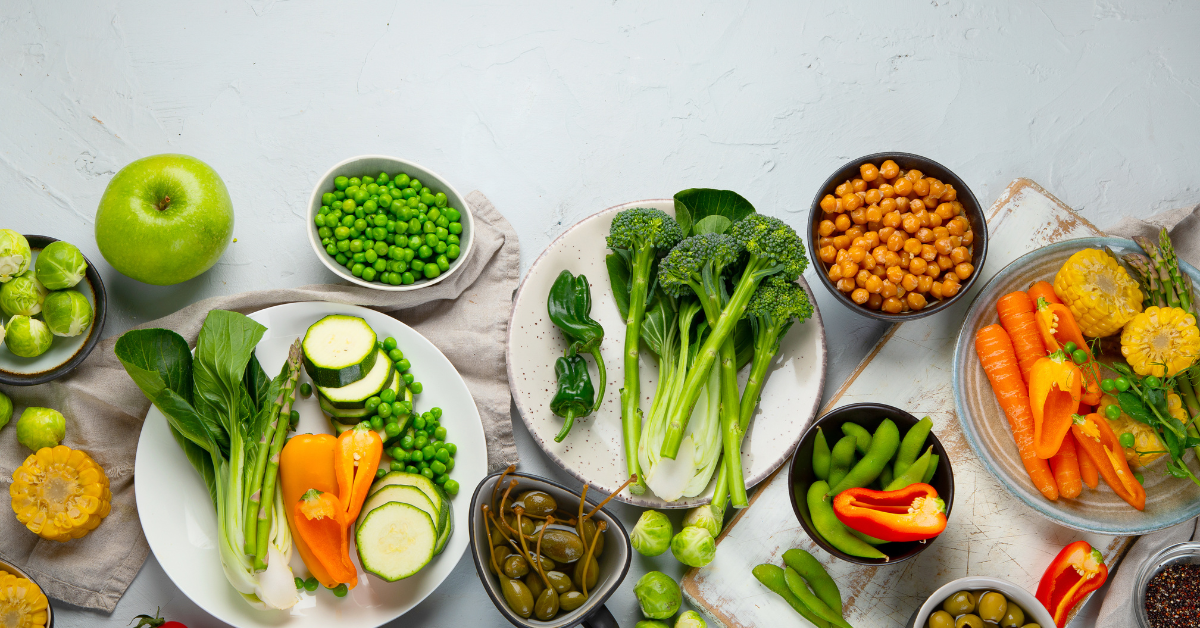Plant-based diets have gained popularity as more people recognize their health benefits and positive impact on the environment. A plant-based diet focuses on whole foods from plants, such as fruits, vegetables, grains, nuts, and legumes, while reducing or eliminating animal products. This dietary approach supports personal health, improves energy levels, and contributes to a more sustainable planet.
Whether you’re considering a fully plant-based diet or simply looking to incorporate more plant-based meals, this article highlights the compelling reasons to make the shift. Let’s explore how a plant-based diet can improve your well-being and contribute to a healthier planet.
What is a Plant-Based Diet?
A plant-based diet emphasizes eating foods primarily derived from plants, including fruits, vegetables, whole grains, nuts, and legumes. Unlike vegan or vegetarian diets, which entirely exclude animal products, a plant-based diet is flexible and may include small amounts of animal products. The focus is on prioritizing nutrient-dense, plant-based options for most meals, making it an accessible choice for anyone interested in improving their health while reducing their environmental impact.
Common Misconceptions About Plant-Based Diets
- Myth 1: Plant-based diets are only for vegans or vegetarians. In reality, a plant-based diet can be adapted to various lifestyles, with some including moderate amounts of meat or dairy.
- Myth 2: Plant-based diets lack protein. Many plant-based foods, such as legumes, nuts, and grains, are excellent sources of protein and can meet daily nutritional needs.
Health Benefits of a Plant-Based Diet
1. Lower Risk of Chronic Diseases
Plant-based diets have been linked to a reduced risk of chronic diseases, such as heart disease, diabetes, and certain types of cancer. High in fiber, antioxidants, and healthy fats, plant-based foods support cardiovascular health and help lower cholesterol levels. Studies show that those who follow a plant-based diet tend to have lower blood pressure, healthier blood sugar levels, and a reduced risk of obesity.
2. Supports Weight Management
Plant-based diets are naturally lower in calorie density but high in fiber, which helps you feel full and satisfied without overeating. This combination makes it easier to maintain a healthy weight, and studies have shown that people on plant-based diets often experience gradual, sustainable weight loss. Fiber-rich foods also improve digestion and can reduce cravings by stabilizing blood sugar levels.
3. Boosts Digestive Health
The high fiber content of plant-based foods, especially fruits, vegetables, and whole grains, promotes a healthy digestive system. Fiber helps regulate bowel movements, reduces the risk of constipation, and fosters a diverse gut microbiome. A balanced gut microbiome is essential for overall health, as it supports immune function and can even influence mental well-being.
4. Improves Mental Well-being
Studies have found links between a balanced plant-based diet and improved mental health. Nutrient-rich foods, particularly those high in antioxidants, vitamins, and minerals, help reduce inflammation in the brain. Omega-3 fatty acids from sources like flaxseeds and walnuts are also beneficial for brain health, potentially reducing symptoms of depression and anxiety.
Environmental Benefits of a Plant-Based Diet
1. Reduces Carbon Emissions
The production of animal-based foods requires significantly more resources and generates higher greenhouse gas emissions than plant-based foods. Livestock farming is a major contributor to methane emissions, a potent greenhouse gas that contributes to climate change. Shifting to a plant-based diet can reduce your carbon footprint, as plants require less energy, land, and water to produce.
2. Conserves Water
Water usage in agriculture varies greatly between plant and animal food production. For instance, producing a single pound of beef can require up to 1,800 gallons of water, while producing a pound of vegetables uses only about 40 gallons. By choosing plant-based foods, you can help conserve water—a critical resource that’s becoming increasingly scarce in many parts of the world.
3. Preserves Biodiversity
The expansion of livestock farming is one of the primary causes of deforestation, which leads to habitat loss and endangers countless plant and animal species. Reducing the demand for animal products helps decrease deforestation and supports biodiversity by preserving natural habitats. Additionally, plant-based diets reduce the need for monoculture crops, like corn and soy, often grown to feed livestock, further protecting ecosystems.
4. Reduces Food Waste
Plant-based diets often encourage more mindful shopping and cooking practices, helping to reduce food waste. When cooking with fresh produce, people tend to buy only what they need and find creative ways to use leftovers. This approach minimizes food waste and reduces methane emissions from decomposing organic matter in landfills, contributing to a healthier environment.
Getting Started with a Plant-Based Diet
Transitioning to a plant-based diet doesn’t have to be overwhelming. Start by incorporating more plant-based meals into your weekly routine, such as “Meatless Mondays” or replacing animal protein with plant-based options for a few meals. Explore different sources of plant-based protein, such as lentils, chickpeas, tofu, and quinoa, to ensure balanced nutrition.
Tips for Shopping Plant-Based
- Focus on Whole Foods: Choose whole grains, fresh fruits, and vegetables over processed items to maximize nutrient intake.
- Buy in Bulk: Stock up on pantry staples like beans, rice, nuts, and seeds, which are versatile and affordable plant-based options.
- Experiment with Plant-Based Recipes: Try new recipes that highlight seasonal vegetables, whole grains, and plant-based proteins for variety and nutrition.
Sample Plant-Based Meals
- Breakfast: Smoothie bowl with spinach, berries, banana, chia seeds, and almond milk.
- Lunch: Lentil and vegetable stir-fry with quinoa or brown rice.
- Dinner: Chickpea curry with mixed vegetables served over basmati rice.
Common Challenges and How to Overcome Them
Challenge 1: Getting Enough Protein
One common concern about plant-based diets is meeting daily protein requirements. Fortunately, there are plenty of plant-based protein sources, including beans, lentils, chickpeas, quinoa, nuts, seeds, and tofu. Incorporating a variety of these foods into your diet ensures you get all essential amino acids and maintain a balanced diet.
Solution:
Build each meal around a protein-rich plant food, like adding chickpeas to salads or pairing quinoa with roasted vegetables. Smoothies with hemp or chia seeds are another great way to boost protein intake.
Challenge 2: Budget-Friendly Plant-Based Eating
Another misconception is that plant-based diets are expensive. While some specialty vegan products can be pricey, most staple plant-based foods, like grains, beans, and seasonal produce, are affordable. By focusing on whole foods and buying in bulk, you can maintain a plant-based diet without overspending.
Solution:
Purchase dried beans, grains, and lentils in bulk, and choose seasonal fruits and vegetables. Meal planning can also help minimize waste and ensure you’re making the most of your groceries.
Challenge 3: Social and Family Dynamics
Transitioning to a plant-based diet can feel challenging if others in your household or social circle follow a different diet. Dining out may also pose difficulties if restaurants have limited plant-based options.
Solution:
Communicate your dietary goals to friends and family, and suggest trying plant-based meals together. When dining out, research restaurants in advance or request simple modifications to make a meal plant-based.
Adopting a plant-based diet is a powerful way to improve your health and reduce your environmental impact. The benefits are extensive—from lowering the risk of chronic diseases and supporting weight management to conserving water and preserving biodiversity. Even small shifts, such as incorporating plant-based meals into your weekly routine, can have a significant positive impact.
Starting with simple steps, like choosing plant-based proteins and exploring plant-based recipes, can make the transition enjoyable and manageable. Embracing a plant-based lifestyle is not just a choice for personal health but a commitment to a more sustainable world.
Ready to make the shift? Start by incorporating one or two plant-based meals each week and see how you feel! Share your favorite plant-based recipes in the comments, and subscribe to our newsletter for more tips on sustainable, healthy living.
















